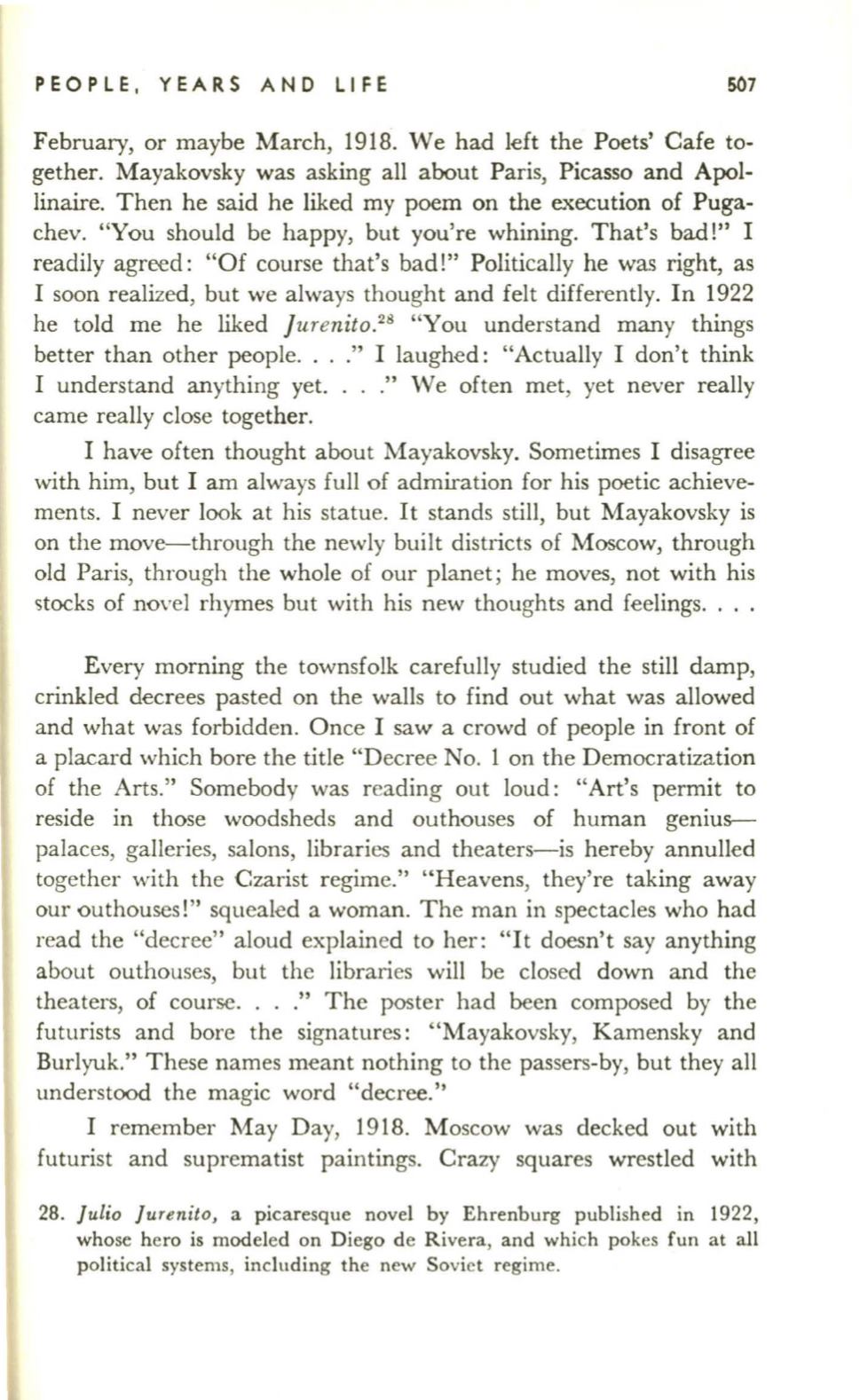
PEOPLE, YEARS AND LIFE
507
February, or maybe March, 1918. We had left the Poets' Cafe to–
gether. Mayakovsky was asking all about Paris, Picasso and Apol–
linaire. Then he said he liked my poem on the execution of Puga–
chev. "You should be happy, but you're whining. That's bad!" I
readily agreed: "Of course that's bad!" Politically he was right, as
I soon realized, but we always thought and felt differently. In 1922
he told me he liked
Jurenito.
28
"You understand many things
better than other people...." I laughed: "Actually I don't think
I understand anything yet. . . ." We often met, yet never really
came really close together.
I have often thought about Mayakovsky. Sometimes I disagree
with him, but I am always full of admiration for his poetic achieve–
ments. I never look at his statue.
It
stands still, but Mayakovsky is
on the move-through the newly built districts of Moscow, through
old Paris, through the whole of our planet; he moves, not with his
stocks of novel rhymes but with his new thoughts and feelings....
Every morning the townsfolk carefully studied the still damp,
crinkled decrees pasted on the walls to find out what was allowed
and what was forbidden . Once I saw a crowd of people in front of
a placard which bore the title "Decree No.1 on the Democratization
of the Arts." Somebody was reading out loud: "Art's permit to
reside in those woodsheds and outhouses of human genius-–
palaces, galleries, salons, libraries and theaters-is hereby annulled
together with the Czarist regime." "Heavens, they're taking away
our outhouses!" squealed a woman. The man in spectacles who had
read the "decree" aloud explained to her: "It doesn't say anything
about outhouses, but the libraries will be closed down and the
theaters, of course...." The poster had been composed by the
futurists and bore the signatures: "Mayakovsky, Kamensky and
BurIyuk." These names meant nothing to the passers-by, but they all
understood the magic word "decree."
I remember May Day, 1918. Moscow was decked out with
futurist and suprematist paintings. Crazy squares wrestled with
28. Julio Jurenito,
a picaresque novel by Ehrenburg published in 1922,
whose hero is modeled on Diego de Rivera, and which pokes fun at all
political systems, including the new Soviet regime.


